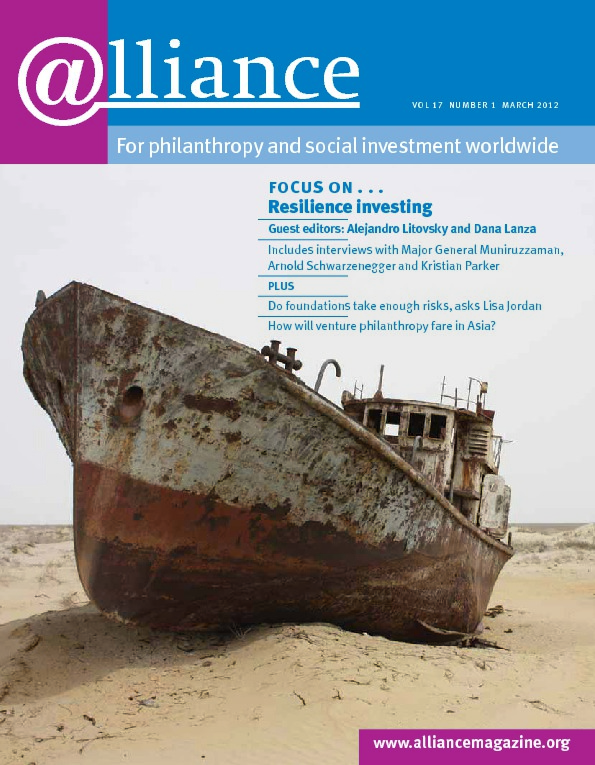Recent moves to build the infrastructure of philanthropy in the Arab region have envisaged gradual progress, but this year’s events have shown that this is not enough. The region’s people are demanding justice and ‘ownership of the agenda’. This will require a new level of transparency in donor-grantee relations, while communities are demanding programmes that fit local needs rather than the donor’s agenda.
In December 2011, SAANED for Philanthropy Advisory convened a meeting in Amman attended by more than 20 leaders from the philanthropy sector in Egypt, Lebanon, Jordan, Palestine, Saudi Arabia and United Arab Emirates to discuss how to drive more accountability and transparency within our sector. Such a move will enhance the sector’s credibility, which will in turn increase its negotiating power with government in efforts to create more conducive regulatory and fiscal structures.
The main areas for discussion were the framework for analysing organizations and what makes a good organization; the legal environment for the philanthropy sector and how to assess the donor-grantee relationship. Participants recognized a number of needs with implications both for the internal working of organizations and for the relations of the sector with the other elements of society. In terms of governance, not all board members are equally engaged. There is often no regular review of board performance, if there is one at all, and there is too much board involvement in management issues. There is sometimes a problem with ownership of organizations: founders or funders have to acknowledge when it is time to let go.
In terms of the external dimension of funders’ work, a clearer focus is needed. Funders need to cultivate better links with the private sector to create greater impact. They also need better communications with the community and with the constituency served. One problem in this respect is measuring impact. This problem and other measures related to performance should be tackled not only at the level of individual organizations but comparatively, in relation to peers, in order to build a local database for a cohort of organizations in the Arab region as a step to establishing recognized national and regional benchmarks and standards for performance, including impact. Participants also recognized that the sector can increase its impact by taking a greater advocacy role.
For more information
Contact Atallah Kuttab at akuttab@saaned.com for a detailed report of the meeting.






Comments (0)